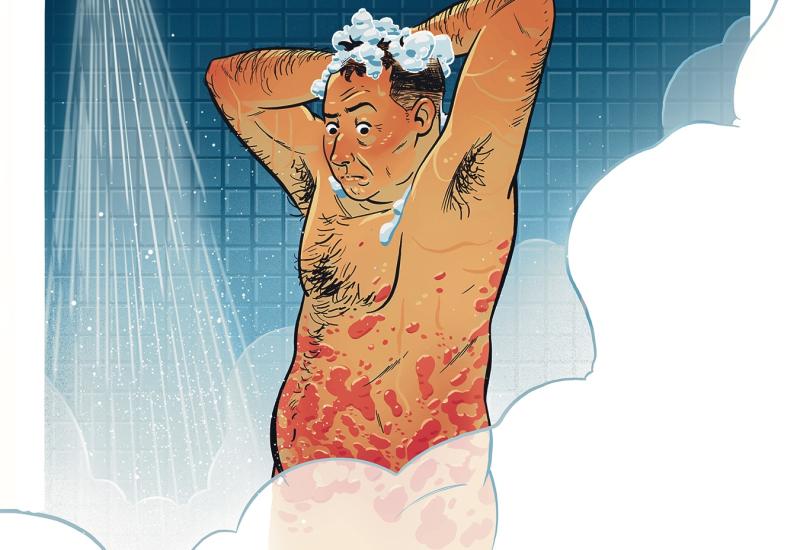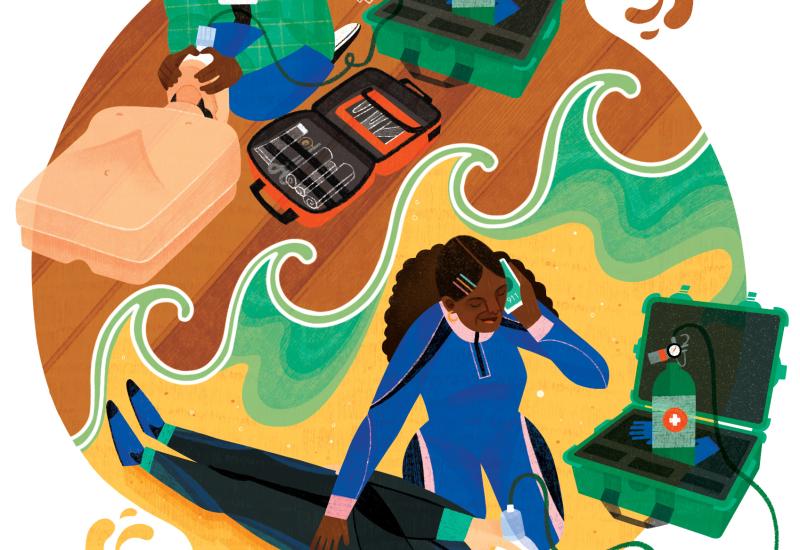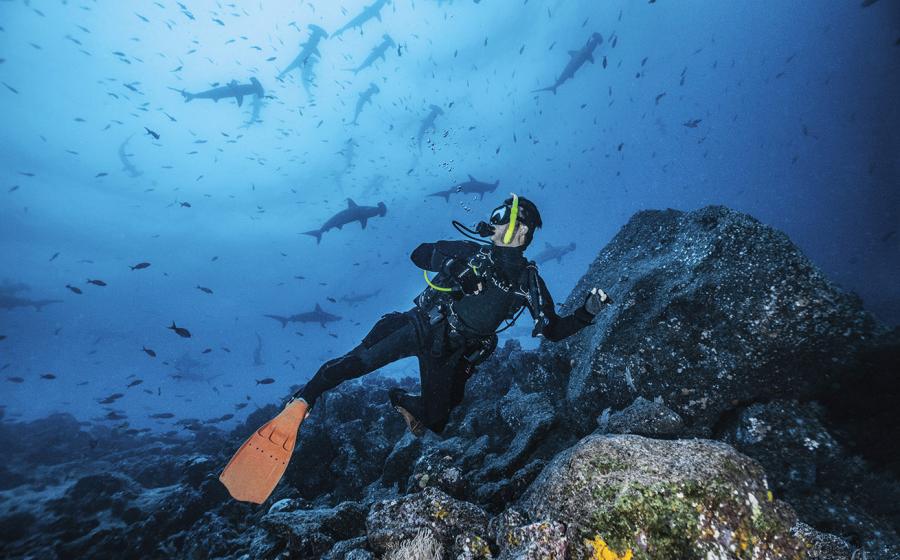Diving Doc: Pulmonary Barotrauma

Ty Sawyer
Quick. What’s the first rule you were taught in your Open Water training? If you answered, “Don’t hold your breath,” you’re right. And the reason is lung overexpansion injury.
This injury occurs on ascent when the gas in the lungs doesn’t have a ready exit. And it takes little to cause it — swimming-pool depths and an increase of just 1.5 pounds per square inch. Because the lungs deal with expanding and contracting volumes of gas, they are most at risk for barotrauma. Even a small amount of air trapped in the lungs can expand on ascent, rupturing the lung and causing life-threatening embolisms.
Pulmonary barotrauma manifests in three basic forms, several of which can be fatal. The most serious is arterial gas embolism. AGE happens when gas from the lungs escapes into the bloodstream, forms bubbles, expands, and impedes blood circulation. The next most worrisome is pneumothorax, where gases enter the space between the lungs’ two outer linings, expand and cause the lung to collapse. In mediastinal emphysema, air escapes and enters the space between the chest and lung, expands and places pressure the lungs, heart, or blood vessels. Last is subcutaneous emphysema, where escaped air travels underneath the skin, typically around the neck, resulting in voice changes, crackling sounds underneath the skin, and difficulty swallowing.
Surprisingly, while the affected diver may feel like he has been struck in the chest area, most often he will not be aware that lung tearing has occurred until the leaked air has entered the extrapleural space or an arterial gas embolism has been precipitated.
Preventing pulmonary barotrauma is extremely easy — just do the first thing you were taught as a new OW student.
And remember: Never, ever ignore chest pain before, during, or after a dive. Even if your heart is just fine, chest pain can be a sign of pulmonary barotrauma. Seek medical help ASAP.
_DocVikingo has been scuba certified for more than 35 years and has dived all over the world. He is a practising doctor in the Baltimore/Washington, D.C., area and has held faculty positions at several major hospitals, including Johns Hopkins. With an interest in diving medicine, he serves as administrator at Scuba Clinic Online. _










